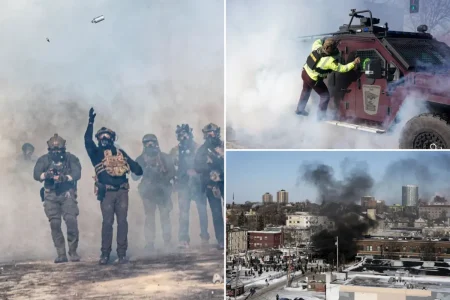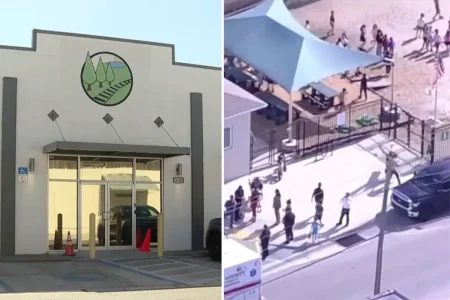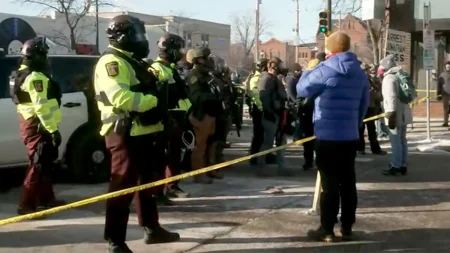Abigail Spanberger Urges University Board to Delay Presidential Selection
In a significant development within Virginia’s higher education landscape, Congresswoman Abigail Spanberger, a Democrat who recently won the state’s gubernatorial race, has formally requested that a university board postpone its selection of a new president. Spanberger’s appeal comes in the wake of controversial circumstances surrounding the previous president’s departure – a situation that many observers have characterized as politically motivated. The former president was reportedly pushed out by Republican interests over the summer, creating what Spanberger sees as a rushed timeline to install new leadership before she takes office.
The congresswoman’s request highlights the delicate intersection of academic governance and political transitions. In her communication to the board, Spanberger emphasized the importance of maintaining institutional integrity during leadership changes. She expressed concern that hurrying the selection process might undermine the university’s academic independence and potentially introduce partisan considerations into what should be a thoughtful, deliberative process focused on educational excellence. Her request fundamentally asks for the courtesy of allowing the incoming administration to participate in such a consequential decision, one that will shape the university’s direction for years to come.
The timing of this situation adds layers of complexity to an already sensitive matter. With Spanberger set to assume the governor’s office in January, the current board appears poised to finalize their presidential selection during the lame-duck period between administrations. This timing has raised questions about governance norms and the appropriate boundaries between outgoing and incoming administrations when it comes to making long-term appointments. Educational policy experts note that university presidential searches typically unfold over many months, involving extensive community input and careful vetting – processes that might be compromised if unduly accelerated.
The controversy sits against a broader national backdrop of tensions between political influences and academic independence. Universities across the country have increasingly found themselves at the center of ideological battles, with governing boards sometimes becoming forums for partisan disagreements. Spanberger’s intervention appears motivated by a desire to depoliticize the selection process and ensure that the next university president enjoys broad-based support across political lines. Her supporters view this as an effort to restore traditional norms of academic governance, while critics suggest it represents undue political interference in its own right.
The university community itself appears divided on the appropriate path forward. Faculty representatives have expressed concern about the circumstances of the previous president’s departure and worry that rushing to appoint a successor might further damage institutional morale and reputation. Student groups have organized to advocate for greater transparency in the selection process, with some explicitly supporting Spanberger’s call for a pause. Meanwhile, current board members, particularly those appointed by the previous administration, maintain that continuity of leadership is essential and that delaying the search would create unnecessary uncertainty for the university.
As this situation unfolds, it illuminates fundamental questions about governance in public higher education – questions that extend far beyond this single institution. At stake are considerations about the proper relationship between elected officials and educational institutions, the importance of institutional continuity across political transitions, and the mechanisms by which universities maintain their essential independence while remaining accountable to the public they serve. Spanberger’s request, while focused on a specific presidential search, ultimately speaks to these broader tensions in American higher education and governance – tensions that communities across the country continue to navigate in an increasingly polarized political environment.









